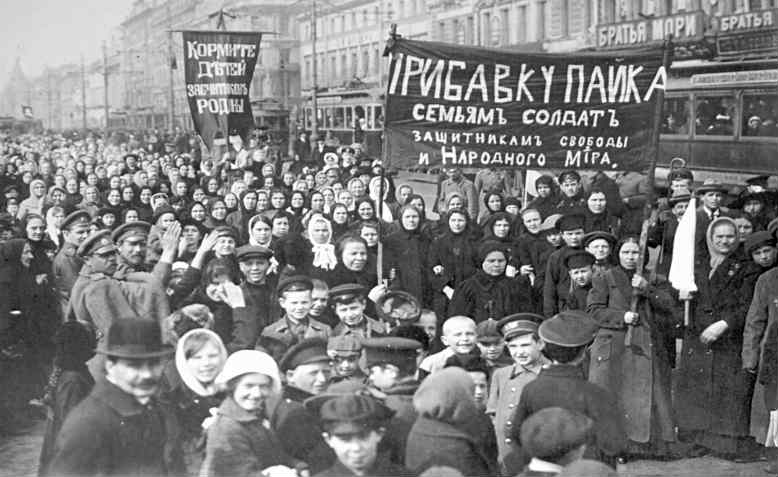 International Women's Day March, Russia 1917. Photo: Wikimedia Commons
International Women's Day March, Russia 1917. Photo: Wikimedia Commons
Society today may seem to be far from revolution, but the discontent because of inequality and war are bubbling under the surface argues Lindsey German
Revolutions are always unexpected. Although when you look back on the run up to them you can discern all sorts of signs which show discontent bubbling beneath the surface. But they erupt out of a period of supposed calm, and sometimes even of demoralisation, when it seems often that nothing will change.
The Russian revolution arose out of a bloody and wretched war, with all its accompanying miseries of food shortages, intensification of work and huge personal loss.
The revolutions which emerge don’t just get rid of handfuls of hated rulers – dictators, kings, despots – but they open up the full transformation of ideas, society and economy. They bring real material benefit for millions of people. In Russia, this was encapsulated in the slogan ‘bread, peace and land’.
Cleansing
The Portuguese revolution of 1974 broke out against a hated and repressive dictatorship which had presided over a series of colonial wars in Africa, which it lost to national liberation movements.
It led to the overthrow of the hated Caetano regime, but to much more: the beginning of democratisation, the ‘saneamento’ or cleansing of workplaces of spies of the old regime, the improvement of working conditions. Revolutions tend to unite most forces in society against the old regime, but as they progress they tend to divide on class lines.
Working people want democracy but they also want material improvements in their lives. A new government alone cannot bring these things about and is often unable to bring about such change – as was the Kerensky government in Russia.
Power
It is then that you get a differentiation in revolutions, between those who want limited change and those who want to push much further.
It is then that working-class people begin to realise their own power to change the world.
Karl Marx, who knew a thing or two about revolutions, described them as the ‘locomotives of history’. They are a tremendous force which drags society forward and opens up new ways of living, organising and thinking. The great bourgeois revolutions of the 17th and 18th centuries in England, France and the America led to radical new ideas of democracy and individual liberty, and created the environment for advances in arts and science.
The Russian revolution, despite its eventual failure, defined politics for over half a century and presaged some of the most radical ideas, inventions and artistic developments of the 20th century.
When we look at society today, we seem a very long way from revolution. However, it is also increasingly clear that the great issues facing humanity – whether war and climate change, or the inability to feed and house its populations, or to stop the obscene levels of inequality – cannot be solved within the existing system, but will need its overthrow to achieve them.
Don’t miss London Counterfire’s upcoming event: Why you should be a socialist with Lindsey German and Shabbir Lakha.

